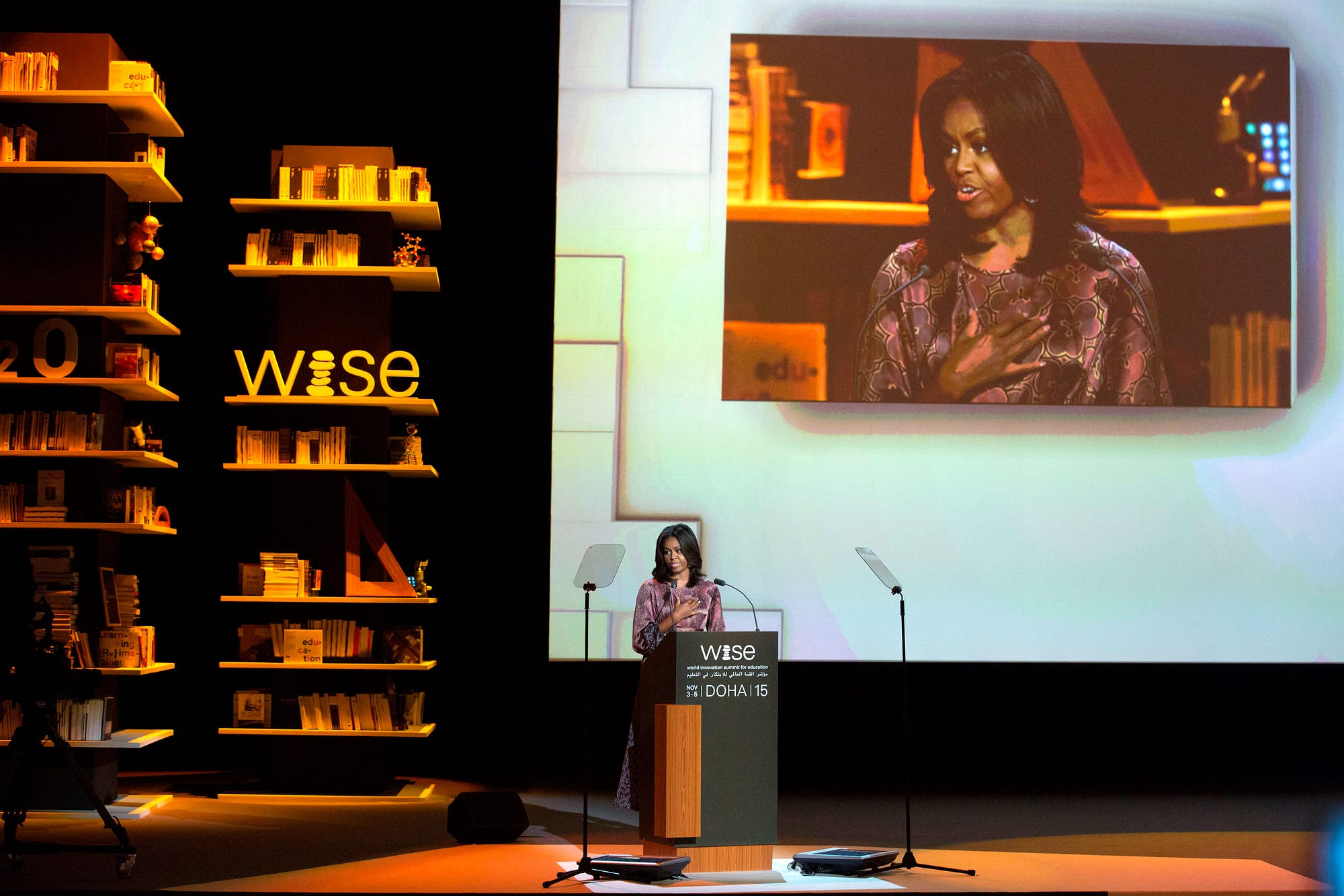Changing attitudes is a key step to ensuring every girl across the world gets an education.
That was the message from Michelle Obama, the First Lady of the United States, who I had the pleasure to hear speak at the World Innovation Summit for Education in Qatar this week.
“We know what’s possible when we empower women and girls and give them the opportunities to develop their promise,” she said. “When we truly start to value their minds and respect their bodies and give them the education they need to fulfill their potential; that doesn’t just transform their lives, it transforms their families and their countries too.”

First Lady Michelle Obama at the World Innovation Summit for Education. Source: White House.
To achieve this potential, resources must be directed towards education in developing countries. But the cultural attitudes and beliefs that limit a girls’ education opportunities also had to change.
That meant building separate bathroom facilities in schools, but also tackling cultural views that menstruation is shameful.
It meant providing girls with safe transportation to school, but also confronting the cultural norms that make girls unsafe in the first place.
It meant not just educating women, but making sure they can join the workforce and demonstrate to their community and country that the investment pays off.
“It’s about whether parents think their daughters are as worthy of an education as their sons. It’s about whether our societies cling to outdated laws and traditions that oppress and exclude women, or whether their view of women are, as full citizens, entitled to equal rights,” Mrs Obama said.
Her message resonated strongly with me. imagine1day is a direct implementer, which means we’re on-the-ground in Ethiopia. It means we’re working closely with local leaders and influencers to not just build schools, but change the way education is viewed and valued for both boys and girls.
In one project, we invited more than 182 religious and clan leaders from 93 communities across two districts to talk about why more than 21,000 of their children — mostly girls — aren’t in school. We discussed the value of education, how it could lead to development and why it was important for both genders to participate. We worked with them to understand why they weren’t sending their girls to school and brainstorm solutions for this.
We’ve now seen transformative approaches to education across communities; from door-to-door enrollment drives to new bylaws imposing fines on families whose children aren’t in school. And, importantly, these initiatives are targeting both boys and girls.
In some communities, like Batali, a community in the district of Meda Welabu, the number of girls enrolled increased by 84% in one year. Across the country, we’re making progress towards parity with 0.83 girls for every boy at our school projects.
As the First Lady said: “We need all of you, men and women, to really think about the needs of women and girls with every program you create, with every policy you craft, with every project you undertake.”
That is something we’re working hard to do.

